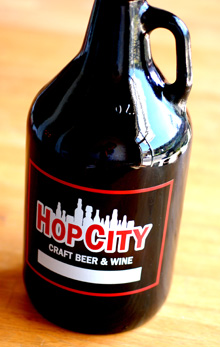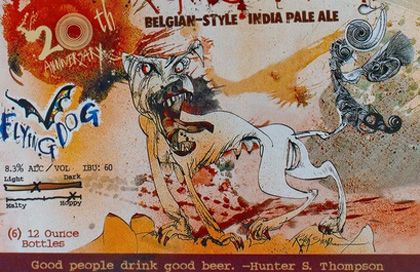Anheuser-Busch has acquired Chicago-based Goose Island Beer Co.
Press releases from Anheuser-Busch and Goose Island include the details:
* Goose Island’s legal name is Fulton Street Brewery. Anheuser-Busch reached an agreement to purchase the majority (58%) equity stake in FSB for $22.5 million. Craft Brewers Alliance (CBA), an independent, publicly traded brewer based in Portland, Ore., that operates Widmer Brothers, Redhook and Kona breweries, owns the remaining 42% of FSB and reached an agreement in principle to sell its stake to Anheuser-Busch for $16.3 million in cash. Anheuser‑Busch holds a minority stake (32.25%) in CBA.
* Goose Island sold approximately 127,000 barrels of beer (a barrel equals 31 gallons) in 2010. A-B will invest an additional $1.3 million in FSB as early as this summer.
* Goose Island founder and president John Hall will remain at chief executive.
* Greg Hall, his son, is stepping down as brewmaster but will work a minimum of three of four days a month for the brewery, advising on beers, branding and strategy. “I can’t really talk about what I’ll be doing for another month or so but it won’t be beer,” Hall said in an interview with TimeOut Chicago.
* Brett Porter will take over as brewmaster, beginning May 1. Before joining Goose Island as head brewer in May 2010, Porter worked from 2005 to 2010 as head brewer at Deschutes Brewery in Oregon.
“Demand for our beers has grown beyond our capacity to serve our wholesale partners, retailers, and beer lovers,” John Hall said for a press release. “This partnership between our extraordinary artisanal brewing team and one of the best brewers in the world in Anheuser-Busch will bring resources to brew more beer here in Chicago to reach more beer drinkers, while continuing our development of new beer styles. This agreement helps us achieve our goals with an ideal partner who helped fuel our growth, appreciates our products and supports their success.”
Anheuser-Busch has distributed Goose Island brands since 2006 as part of an agreement with Widmer Brothers Brewing that provides Goose Island access to the network of wholesalers that distribute A-B beers.
“These critically acclaimed beers are the hometown pride of Chicagoans,†said Dave Peacock, president of Anheuser-Busch. “We are very committed to expanding in the high‑end beer segment, and this deal expands our portfolio of brands with high-quality, regional beers. As we share ideas and bring our different strengths and experiences together, we can accelerate the growth of these brands.â€
The two Goose Island brew pubs are not part of the deal, but will continue in operation.
 Hop City Craft Beer & Wine in Atlanta filled 503 growlers in the first three days it offered the 64-ounce containers to obviously eager customers last week. Hop City is the first retailer in metro Atlanta to sell the refillable glass jugs.
Hop City Craft Beer & Wine in Atlanta filled 503 growlers in the first three days it offered the 64-ounce containers to obviously eager customers last week. Hop City is the first retailer in metro Atlanta to sell the refillable glass jugs.
 The Illinois Craft Brewers Guild (ICBG) stands in opposition to an amendment to Senate Bill 754 that hurts the state’s small brewers.
The Illinois Craft Brewers Guild (ICBG) stands in opposition to an amendment to Senate Bill 754 that hurts the state’s small brewers.